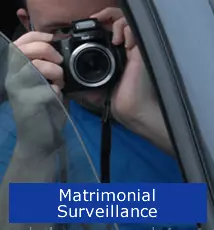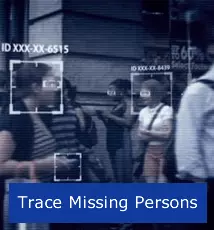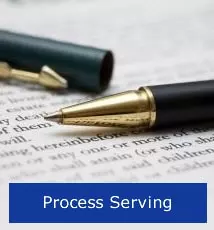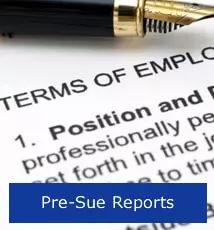








Process serving is the delivery of legal documents, to the person to whom they are intended for. Quite often it is not sufficient to simply post the paperwork to the respondent. The person issuing the papers would be the Claimant, Applicant or Petitioner. The person to receive the papers would be the Defendant or Respondent.

Examples of papers that need to be personally served are
In these situations an independent party must deliver the documents by hand. This is when a Process Server would be employed. Process servers can be used to deliver a wide range of documents from County Courts all the way up to the High Courts and beyond. Sometimes people will instruct a Process Server to hand deliver a letter, just so they know the correct person has received it.
In the UK the Process Serving industry is unregulated, and closely tied in with Private Investigation. The lack of regulation means that anyone could serve court documents, so long as they aren’t a party in the case. Many solicitors will have a person they use regularly for Process Serving and making other local enquiries. If you want an experienced Process Server in the UK you would need to look up a company that serves legal documents, or a private detective agency, such as EJM Investigations. The main benefit of using a private investigation agency to effect service of legal documents is that the highly trained detectives will be able to quickly and efficiently track down an evasive respondent. This can be crucial if there is a time frame to adhere to. For example in some cases the papers must be delivered at least 14 days prior to the next court hearing.
Under the Civil Procedure Rules there are allowances for service by letterbox, telephone, and email, amongst other methods. However it is simply not enough to use one of these methods as a shortcut. Dependent upon the type of documents being served there is a procedure to follow. In some cases a minimum number of attempts must be made. It may be that a letter of appointment must be sent to the last address of the respondent. In certain circumstances the court may direct for other efforts to be made to trace the respondent before they will grant permission for subservice. An experienced process server will know which are the relevant rules, in respect of the papers to be served. This means that no time will be wasted and the papers will be deemed to have been served at the earliest opportunity. Should it become necessary to trace a new address for the respondent then by using a private detective agency you have the best chance of success. Once traced, the process server can then efficiently serve the documents. Should the respondent have moved to another town, then a private detective agency such as EJM Investigations will simply call upon one of their network of proven agents to effect service as soon as possible.
Once a process server has served the documents on the respondent they must then complete a proof of service. This could be in the form of a certificate, a statement or an affidavit (a sworn statement) of service. A trained process server will know which is the required format for the proof of service. If the respondent has been evasive, or sub service of the papers was required then a more detailed statement would be required, with specifics of the attempts made at personal service. Certain statements, such as those for a statutory demand must also specify the “deemed date of service”. This is not the time of service and maybe not even the same day. If served after a certain time then the deemed date of service would be the next business day.
Most people start by searching Google for a local Process Server, or private detective agency. You could also speak to your solicitor who is likely to have a process server who they use on a regular basis, and will be happy to recommend. You should always check the testimonials of the Process Server you are to use and ensure they are registered with the Information Commissioner’s Office, as required under the Data Protection act.
You need to supply 2 copies of the papers, one for service and one for exhibiting to the statement of service. You should also supply as much detail about the respondent as you have, including a photograph if possible. This will assist the process server in efficiently effecting service of the documents, in particularly on an evasive respondent.
Serving documents internationally can be a minefield of legalities. Some courts insist on following the regulations of the jurisdiction where papers were issued, others are happy for you to follow the procedures of the jurisdiction where the papers are to be served. Statements and Affidavits can vary greatly in format and required details. It is also the usual procedure for the affidavit to be notarized instead of sworn. In some countries only a barrister can effect service of documents. In other places process servers must be licensed. And it’s not only international process serving that can throw up issues. Service of Scottish papers often requires a second process server to be a witness to the service. EJM Investigations have overseen service of document both from, and in many countries worldwide. We have the resources and networks to ensure that if we come across documents we haven’t served before, or from a country we haven’t dealt with, we can quickly ascertain the procedures to be used and effect good service.
By instructing EJM Investigations to carry out process serving on your behalf, you can be assured of a prompt and cost effective service. As well as offices in Preston, Manchester and Liverpool, we have a network of agents across the UK who we have used on many occasions, meaning you don’t have to entrust your legal matters with someone whose reputation you are unaware of.
Call us now on 01772 334700!
Simply fill out the form below with your enquiry details and we shall get back to you.
Contact us using the following details:
Tel: 01772 334 700
Mob: 07940 135 006
Email: info@ejminvestigations.co.uk
Address:
Cotton Court
Church Street
Preston
Lancashire
PR1 3BY
